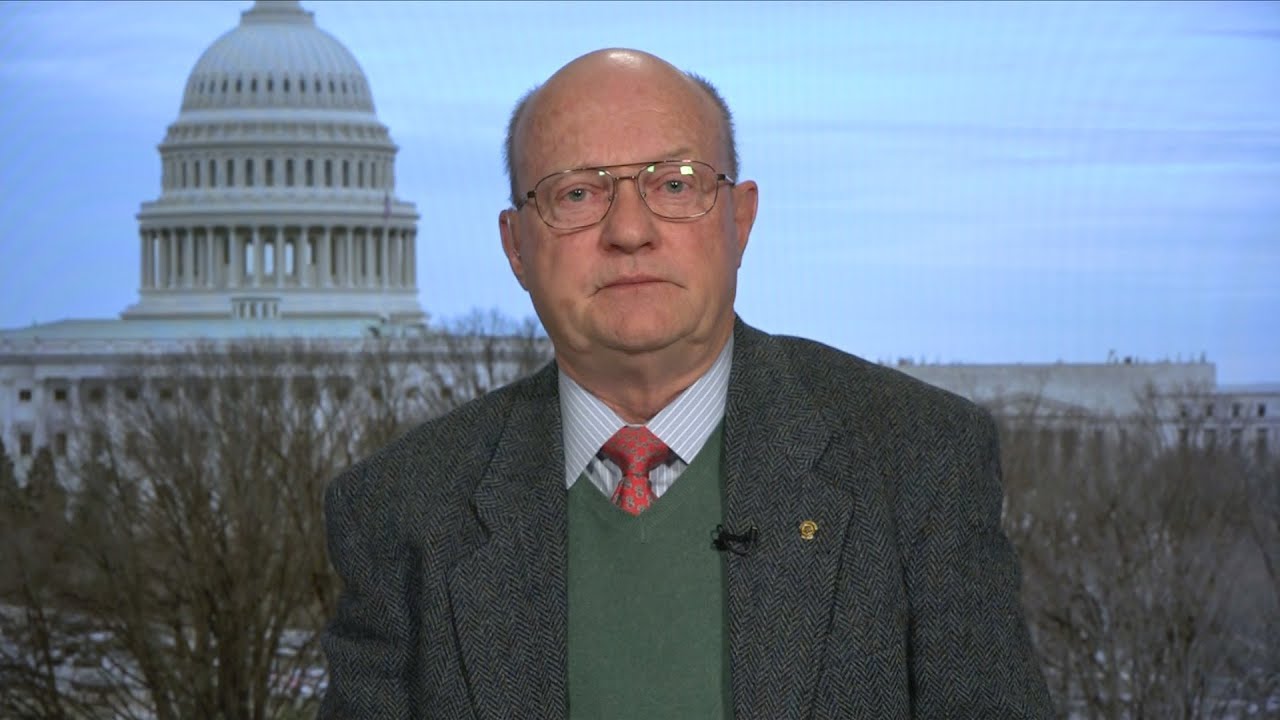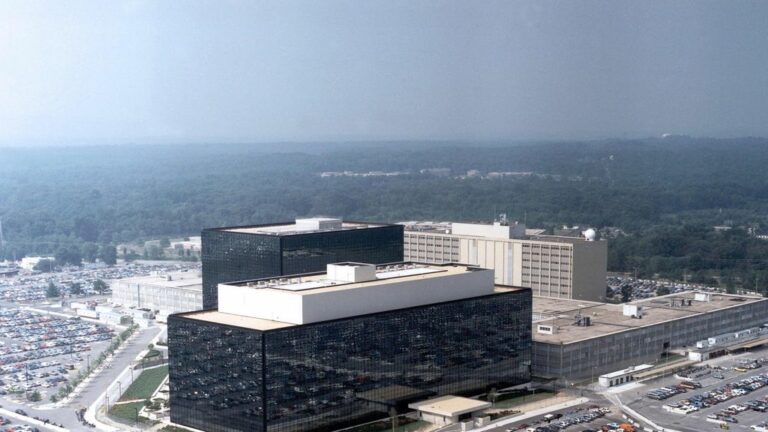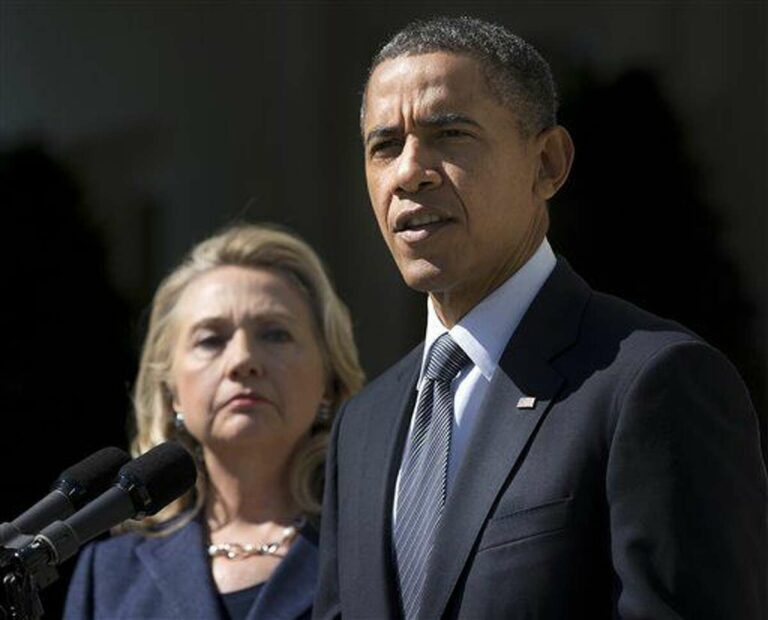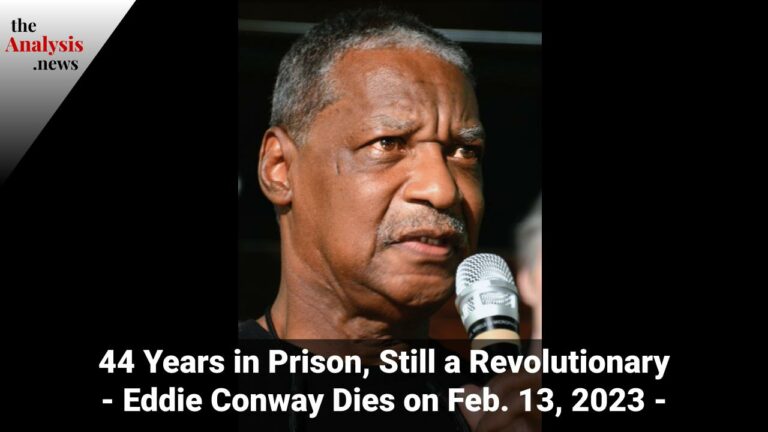This is an episode of Reality Asserts Itself, produced on October 28, 2009. This talk by Larry Wilkerson was the keynote speech given at an event sponsored by the Sam Adams Associates for Integrity in Intelligence, American University History Department, and American University’s Nuclear Studies Institute on Oct 21, 2009, at American University in Washington, DC. Sam Adams Associates for Integrity in Intelligence describes itself as “a movement of former CIA colleagues and other associates of former intelligence analyst Sam Adams, who hold up his example as a model for those in intelligence who would aspire to the courage to speak truth to power”.
LAWRENCE WILKERSON, FMR. STATE DEPT. CHIEF OF STAFF TO COLIN POWELL: I spoke with about 20 Europeans this morning from Turkey, from Slovenia, from the Czech Republic, from Latvia, from Estonia, from the UK, from Ireland. And to a person in that room, they saw the same thing I was seeing in this much more detailed scenario that I gave them: they saw the silver lining. The silver lining is that we manage this with good leadership, consistent, sustained good leadership. Can’t just be President Obama; it has to be President Obama, President Brown, President Wilson, whomever. It has to be about 20 to 25 years of good leadership. Where are we going to find that with our political process?
Think about 2000. Think about 2000. I sat there as a member of the Republican Party, and I thought to myself, my God, 300 million people in this country and all we can come up with is Al Gore and George W. Bush. My God. How do we change that? I think that’s part of the problem. But we have got to have sustained leadership, we’ve got to have good leadership, and we’ve got to begin to meet these challenges. If we want oil, if we want gas, if we want it for our allies—. And one of the things that wasn’t mentioned about the overthrow of Mohammed Mossadeq in ’53: Truman didn’t want to do it; Truman was adamantly opposed to it. Truman didn’t like the CIA very much. Read his editorial in The Washington Post, December 22, 1963, right after Kennedy was assassinated. Truman says in that editorial, “I don’t recognize the CIA I created. That ain’t the CIA I created.” One of the reasons that Eisenhower changed his mind—because Eisenhower came in opposed, also—one of the reasons was a guy by the name of Allen Dulles at the CIA and a guy by the name of Winston Churchill, who’d come back to power in the UK, and both were essentially saying not just that the communists are coming, the Tudeh Party, which was sort of farcical, but they were saying “the Marshall Plan, the Marshall Plan” and “England” and “England,” because this money was huge coming from AIOC [Anglo-Iranian Oil Company] into the coffers of the Europeans, and particularly into England, and you needed cheap oil to fuel the recovery of England and the recovery of Europe after that very cataclysmic war for them.
We were the only nation, essentially, that was unscathed. The rest of Europe and Japan, of course, they were ruined. They had to start over again. So that was part of the motivation. If part of the motivation is that we have to go after oil and gas in the world, then by God we’d better start telling the American people about this, shouldn’t we? And we should give the American people, including you here tonight, a right to vote on this. And you should have the right to say, that’s not the way we want to do it, I believe the blueprint is a better way to do it, I believe that we should deal with world leaders, I believe that the marketplace—my God, we are always talking about how it works so well—the marketplace ought to designate where this goes. And if it starts running out and we haven’t made the transition fast enough to the basket of energy resources that we’re going to have to, then by God we’ve got to have it administered somehow. And you don’t administer it as I was looking at doing in war planning in the US Pacific Command in the mid-’80s by mounting the Arabian Peninsula with 5 million American soldiers, taking it over, putting the oil wells under the UN in a trusteeship, and administering them for the world. That’s not the way to do it. You need to get to talking beforehand. You need to get to dealing diplomatically beforehand. You need to work on the problem. You do not need bombs, bullets, and bayonets. And I’m a soldier up here telling you this because soldiers die, soldiers get wounded. I tell my students the most fateful decision a president can make is the decision to send young boys and young girls to die for state purposes, and something we forget: to kill others for state purposes.
Even by DOD’s [Department of Defense] estimates, we’ve killed 100,000 in Iraq. I think it’s more like 300,000. We have sent the greatest refugee problem into Syria and Jordan that the world confronts right now. A young lady who was a student of mine who came back from East Africa just a week ago was in my office. She had been in Jordan, she had been in Syria, and she said this is the worst refugee problem since the Holocaust. And where do you see it in an American newspaper? No one is reporting on it. Right now, in Jordan, even those Iraqis who were wealthy enough to sustain themselves in Jordan are out of money. Where are they going to go? The greatest comment on the instability of Iraq today is the fact that almost 4 million Iraqis are not returning. Tell that to David Petraeus. Tell that to Ray Odierno. Tell that to Ambassador Chris Hill. How can you say that Iraq is solved when you’ve got 4 million Iraqis who are saying, “I’m not going back”? And they’re not going back because it’s not secure, it’s not safe. So how do you get out of this? How do we as Americans get out of this mess, this fiscal mess, this war instrument, the highest-use mess, this business of presidents thinking that the only disciplined instrument of national power they have lives in the Pentagon? It isn’t going to be because of President Obama.
It isn’t going to be because of National Security Adviser Jim Jones. It isn’t going to be because of Secretary Clinton. It’s only going to happen if we Americans say that we’re fed up with it. It’s only going to happen if we begin to stop doing what we’ve been doing for the past—I don’t know—my lifetime. And I’ve been right there with you. We’ve been so damned apathetic about our government. You know, the Founders put a clause in the Constitution. It’s called—it’s very short. It’s extremely short. It’s called the impeachment clause. And I think James Madison, James Monroe, George Washington, Thomas Jefferson, you name the founder, would be absolutely surprised that we haven’t used that clause except twice fecklessly and once successfully.
The one successful one was when the articles of impeachment were so strong against Richard Nixon, he chose to resign rather than be the first president to be successfully impeached. I think the Founders would have said we would have impeached a president probably about every generation. That would have been their prognosis. Why haven’t we? Because, as Eisenhower warned in his ’61 farewell address, the insidious power that goes unwatched, the insidious power that isn’t overseen, that isn’t regulated, that isn’t looked at by conflicting interests and so forth, which was the principal of our founding, is power that will be abused and misused. And we have allowed power to be misused and abused in this country, particularly since Richard Nixon and Henry Kissinger. It’s been going on for a long time. I don’t pretend to have the answer for you up here, but I do know that Jefferson was right when he said the answer is in the clash of opinion, of idea, debate, and so forth. I don’t even see that anymore.
Ray’s point about the newspapers—well taken, well taken. Where is the debate going on? Where is the discussion going on? Where are the ideas being refined? It isn’t in the Congress of the United States. There are people over there who do not even realize that we are bankrupt. They think they can continue to print money because they’ve been printing money for so long that that is a lifestyle for them. The only way this is going to change is from the ground up, and we would be, let me say as cynically as I can, probably the first democratic republic possessed of an empire, commercial or territorial or otherwise, to resurrect itself from the ashes, because history says we’re going there down. That’s what history says. I dare you to name a single empire in human history that has survived. It is nowhere written in stone that the American Empire will be exceptional, despite what Madeleine Albright said about us being the exceptional nation. So it’s about time we get busy and do everything in our power to make sure that whatever is happening happens so that our posterity—which we seem to have forgotten about, which our founders didn’t—so that our posterity does survive with some decent prospects for the future.
I was out at the Stanford Law School about seven months ago, and I told about 300 prospective lawyers, “You will be the first generation in American history, as short as it is, to have a lower standard of living than the generation before you.” Wow. The Q&A lasted for two hours. Not individually—one of them will go out and make $300,000 in his first job. But collectively my children, your children, your grandchildren, and my grandchildren are going to have a lower standard of living than I had. That’s the reality. Whether they turn that around so that their generation and the generation after them and the generation after them even has a place that is free, that is marked by democratic principles, that looks like a well-governed republic, that isn’t dominated by its military, that isn’t physically irresponsible is up to them. That’s the challenge that they have. We have not left them, will not leave them, a great opportunity in that regard. The challenge is much greater than it was for my generation or the generation before that, in my view. This fiscal crisis that we’re in right now and that we will not get out of for some time to come is more profound than 1929, and we will see the results of that slowly, over the next 5 to 10 years. It is going to be difficult. It is going to be challenging. It is going to be extremely hard. And Afghanistan and Iraq are going to be solved in that sense.
But as I left the European leaders today, I said, “Think about it for a moment. As bad as the United States of America has been in the last 8, 10, 15, 20 years with regard to the world community, as bad as our leadership has been, as difficult as it has been sometimes to even be with us on this or that issue, what’s going to replace us?” John McCain once said the world without American leadership, regardless of how that leadership sometimes goes, will be worse than a world with American leadership. I think the answer to John McCain’s comment in the last eight years was one of doubt as to whether that was a reality or not. Lots of my friends in Europe and lots of my friends in Japan and in Asia in general would question that. They would say American leadership has gotten so bad that we’re now working on other alternatives. In Asia, they’re denominating transactions in renminbi and yuan and yen and euros.
OPEC they’re talking about denominating oil transactions in other than dollars. If the dollar ceases being a transactional and reserve currency in the world, that’s a shock, that’s going to be a huge shock for us. We will no longer be able to borrow money on Monday and pay back less money on Tuesday. Charles de Gaulle once called it the great evil of the United States, the fact that we had the dominant currency in the world. That may be going away. All of these things are coming, all of these things can be dealt with, all of these things can be managed with good leadership. But most of all, most of all they require a vigilant, alert, constantly watching, constantly overseeing electorate, and that may be the greatest challenge of all. Thanks.
Never miss another story
Subscribe to theAnalysis.news – Newsletter
“Lawrence B. Wilkerson is a retired United States Army Colonel and former chief of staff to United States Secretary of State Colin Powell.”









